Vietnam
US Eximbank to extend US$1B for Vietnam wind projects
The Export-Import Bank of the US has agreed on a credit package worth US$1 billion for a wind power development programme in the Mekong River Delta between 2011 and 2015. A letter of intent to this effect was signed in Hanoi on October 18 by representatives of the Vietnam Development Bank (VDB) and US EXIMBANK. Under the deal, VDB is allowed to borrow international loans channelled through the US bank for wind power projects in Vietnam. Currently, phase I of such a project is under way in the southern province of Bac Lieu, using VDB’s domestic loans. The first turbine with equipment imported from the US’s General Electric Company will be inaugurated in early November 2011. Project investors will negotiate a business contract with General Electric to supply equipment to the project, using loans from US EXIMBANK. According to Vu Duc Dam, Minister and Chairman of the Government Office, Vietnam is being seriously affected by climate change. The Vietnamese government encourages and creates conditions for developing environmentally-friendly technology. David Shear, US Ambassador to Vietnam, who witnessed the signing of the deal, said the US Government is interested in developing renewable energy in Vietnam. US investment in the Bac Lieu project will help contribute to meeting the goal of increasing cooperation between the two countries.
US Eximbank to extend US$1B for Vietnam wind projects
The Export-Import Bank of the US has agreed on a credit package worth US$1 billion for a wind power development programme in the Mekong River Delta between 2011 and 2015. A letter of intent to this effect was signed in Hanoi on October 18 by representatives of the Vietnam Development Bank (VDB) and US EXIMBANK. Under the deal, VDB is allowed to borrow international loans channelled through the US bank for wind power projects in Vietnam. Currently, phase I of such a project is under way in the southern province of Bac Lieu, using VDB’s domestic loans. The first turbine with equipment imported from the US’s General Electric Company will be inaugurated in early November 2011. Project investors will negotiate a business contract with General Electric to supply equipment to the project, using loans from US EXIMBANK. According to Vu Duc Dam, Minister and Chairman of the Government Office, Vietnam is being seriously affected by climate change. The Vietnamese government encourages and creates conditions for developing environmentally-friendly technology. David Shear, US Ambassador to Vietnam, who witnessed the signing of the deal, said the US Government is interested in developing renewable energy in Vietnam. US investment in the Bac Lieu project will help contribute to meeting the goal of increasing cooperation between the two countries.
Deputy PM denies power price hike to subsidise losses of govt firm
Vietnam's Deputy Prime Minsiter Vu Van Ninh empahsized that the government would not approve any increase in power price in order to offset Electricity of Vietnam Group’s losses from its non-core investments.
Construction on Song Bac River hydro plant starts
The construction of a dam across the Song Bac River for a hydropower plant in northern Ha Giang province is now underway.
License granted to construction of An Khanh 2 thermal plant
The construction license has been granted to the An Khanh Thermal Power Joint Stock Company by the Thai Nguyen Provincial People’s Committee for the An Khanh 2 Thermal Power Plant.
German investors most interested in Vietnam clean energy projects
German investors are most interested in developing renewable energy in Vietnam, a forum has heard.
Emissions from Vietnam hydro plant sold to German bank
Trung Nam Power will sell emissions from its Dong Nai Hydropower Plant No 2 to Germany’s Deutsche Bank to for the first 10 years of its operation.
Vietnam borrows $1B for Mekong wind power development
Vietnam Development Bank has been approved Deputy Prime Minister Vu Van Ninh to sign a credit commitment letter to borrow $1 billion for wind power development in the Mekong Delta region in 2011-2015 period.
Renewable energy fair to be held in Hanoi next March
Vietnam's National Agency for Science and Technology Information will collaborate with Germany's International Exhibition and Fair Service Company to organise a renewable energy fair in Hanoi next March.
Lai Chau hydro-electric power plant to be built at VND 6,000B
A loan of VND6,000 billion will be allocated for the construction of a hydro-electric power plant in the northern mountain province of Lai Chau.
Japan to provide consultancy for Vietnam nuclear power plant
Japan Atomic Power Company will provide consultancy on Ninh Thuan 2 plant project for investor Electricity of Vietnam Group within 18 months at the cost of almost JPY 2 billion.
Vietnam to fine of up to VND 100 M for energy use violations
Prime Minister Nguyen Tan Dung has promulgated a decree regulating fines on administrative violations relating to economical and effective energy use.
Binh Thuan launches energy saving program
Vietnam's Department of Industry and Trade and the provincial Center of Industrial Promotion launched its energy saving program, which has been planned and implemeted from the start of 2011.
EVN ties up with Japanese group for Vietnam nuclear plant
A Japanese consortium and state utility Vietnam Electricity has signed an agreement to cooperate on the Ninh Thuan 2 nuclear power plant project in Vietnam.
Japan advances nuke plans with Vietnam
The Japan Atomic Energy Co agreed to conduct a feasibility study in building Vietnam's first nuclear power plant.
Vietnam explores possibilities in renewable energy
Vietnam has created development strategies to fully exploit the potential of renewable energy. According to HCM city power development plan 2011-2015 approved by the Ministry of Industry and Trade, by 2015, there will be two more power plants using energy produced from waste sources with a total capacity of 40 MW. The Department of Industry and Trade is studying to build a plant producing electricity from organic waste in three markets of Binh Dien, Thu Duc, Hoc Mon. Preliminary statistics have shown that each day, a large wholesale market emits about 50 tons of garbage, 95% of which is organic waste, suitable for the incubation to collect gas for generating power. Investment capital for a power-from-waste project in each market is estimated to be about USD 3-4 million. If these projects succeed, they shall not only provide power to the city but also helps wholesale markets save garbage collection cost--each market has to spend an average of VND 300 million per month on garbage collection. Department of Industry and Trade has also been collecting data on wind energy resources in Can Gio District to assess the viability of wind power in coastal areas of HCM city. As planned, Can Gio coastal areas such as Thanh An commune, Can Thanh town, Ly Nhon commune have favorable conditions for the development of renewable energy sources such as wind power, solar power. The World Bank has estimated that Vietnam could develop wind power on approximately 80% of the total area of the country (equivalent to 102 MW). Each year, Vietnam has about 2000 to 2500 hours of sunshine with the average radiation intensity of about 4.5 kWh/m2/day, equivalent to 43.9 million tons of oil equivalent per year. Data of Swedish Centec Vietnam Center show that investment reprots are being made on fourteen grid-connected wind power projects and seven projects are setting up construction plans. Solar cell systems have also been present in 38 provinces. According to Dr. Hoang Tien Dung, Director of the Institute of Energy - Ministry of Industry and Trade, Vietnam has various renewable energy sources with great potential but they have not been fully evaluated; it is necessary to investigate and supplement data, then proceed to planning and zoning these types of energy for rational investment and exploitation. Although the State has issued a number of mechanisms, policies and orientations for the development of renewable energy but in short term, there are many difficulties in developing renewable energy. There have been no available financial resources to support the users of heat, electricity produced from renewable energy, such as solar cell, solar water heater, and biomass; no support mechanisms for off-grid power produced from renewable energy; lack of investment in the assessment of potential and construction of database and lack of long-term funding for the program. Currently, the production cost of renewable energy has been lower than before but is still very high. For example, the production cost of one kilowatt of solar power is up to 18 cents, while coal power price, gas power price is only 5.1 to 5.2 cents per KWh. Therefore, to exploit the potential of renewable energy, there should be price support mechanisms.
Vietnam attracts clean energy investors
Vietnam has become the attractive destination for foreign clean energy investors with shortage in energy and willingness to develop clean energy sources.
Vietnam now the aiming point of clean energy investors
Lacking energy and wishing to develop clean energy sources, Vietnam has become the attractive destination for foreign clean energy investors. When announcing the project to build a solar panel factory in HCM City in March, the US First Solar group aims to make more profits with the low-cost solar cell technology, about 78 cent per watt. The project by First Solar to increase the capacity from 1.4GW to 2.7GW, which is expected to create 600 jobs in Vietnam, has the total investment capital of one billion dollars. IC Energy has also set up a solar panel factory in the Chu Lai Open Economic Zone with the investment capital of more than 390 million dollars. Meanwhile, German Roth&Rau has also invested 275 billion dong in a factory in the Hoa Lac High-Tech Park. A lot of other large-scaled wind power projects in Vietnam have also been kicked off. The 99MW wind power plant in Bac Lieu province has the total investment capital of 4500 billion dong. One of the biggest equipment suppliers of the project is the US-based GE Group. A project on wind power plant in Tra Vinh province has been developed by German EAB, which is expected to have the capacity of 30MW. Meanwhile, a project in Soc Trang is expected to have the capacity of 300MW when becoming operational. Meanwhile, sources say that the US Cenergy Power is moving ahead with the solar energy projects in the two islands of Cat Hai and Bach Long Vi. Investment funds jump into clean energy sector Of the 150 million euro worth of ODA (official development assistance) capital granted by the German government to Vietnam in 2010-2011, 33 percent of the capital will be poured into the energy sector and climate change. This has helped catch more attention from foreign investors when considering investment plans in Vietnam. Besides this, the market now has favorable conditions to develop, because a lot of investment funds which plan to funnel capital into the recycle energy sector have been established. A World Bank’s survey on the energy for Asia conducted in 2010, shows that Vietnam has great advantages to make wind power with the total potential capacity of 500,000 MW, which is 200 times higher than the capacity of Son La hydropower plant and 10 times higher than the forecast total electricity capacity to be reached by 2020. Vietnam has 8.6 percent of its area which is believed to have “good” and “very good” potentials to set up big-scaled wind power stations, and more than 40 percent of land in rural areas for small-scaled stations. Meanwhile, scientists have warned that Vietnam may meet big problems in the future, when the electricity consumption is forecast to increase by 20 percent, while the electricity output increases by 13 percent only. Indochina Capital has set up MRRF with the capital of 50 million dollars, a fund which plans to pour money into recycle energy and environment projects. The fund also plans to mobilize 150 million dollar worth of capital from other sources which will then be injected in wind, solar power plants, small hydropower plants and energy saving projects. Prior to that, Dragon Capital announced the establishment of the regional Mekong Brahmaputra fund which specializes in making investment in recycle energy, clean water production and waste treatment. To date, 45 million dollars worth of capital has been mobilized from financial institutions such as FMO, ADB, Finnfund and BIO, while the capital is expected to increase to 100 million dollars this year. IFC and Norwegian SN Power have also agreed on the establishment of InfraVentures which specializes in seeking investment opportunities in recycle energy projects. For the last many years, IFC has been well known as a big investor in energy saving and clean production sectors.



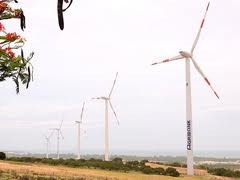



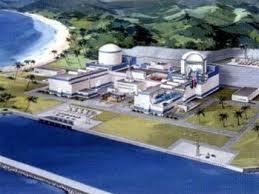
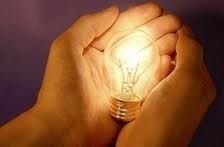
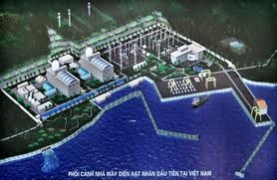
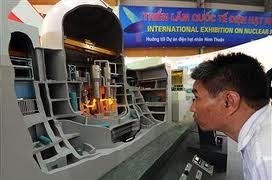
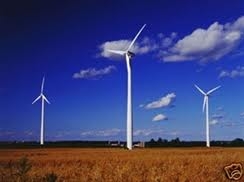
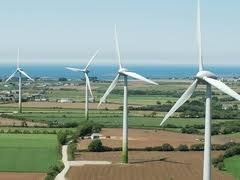

 Advertise
Advertise



















